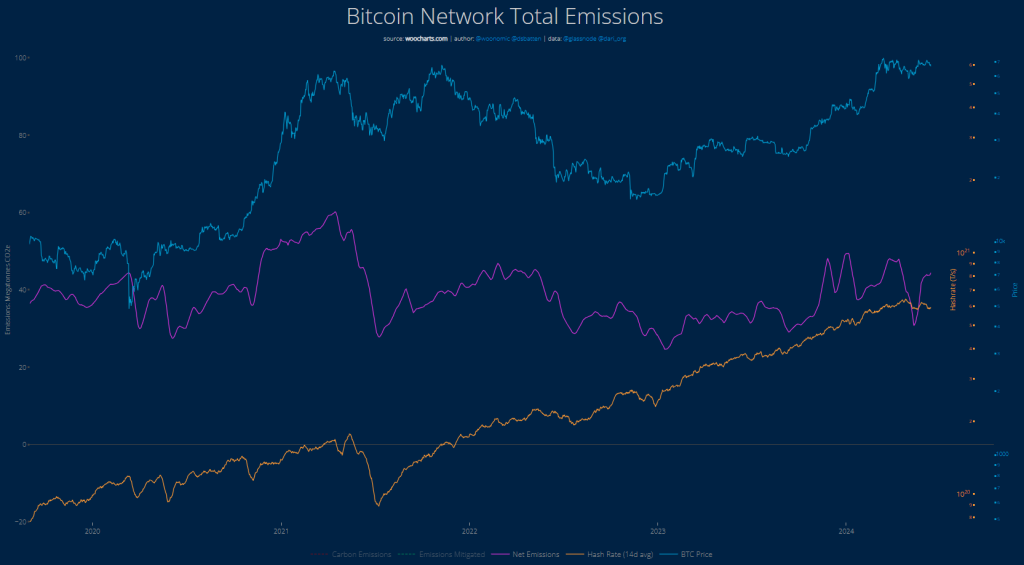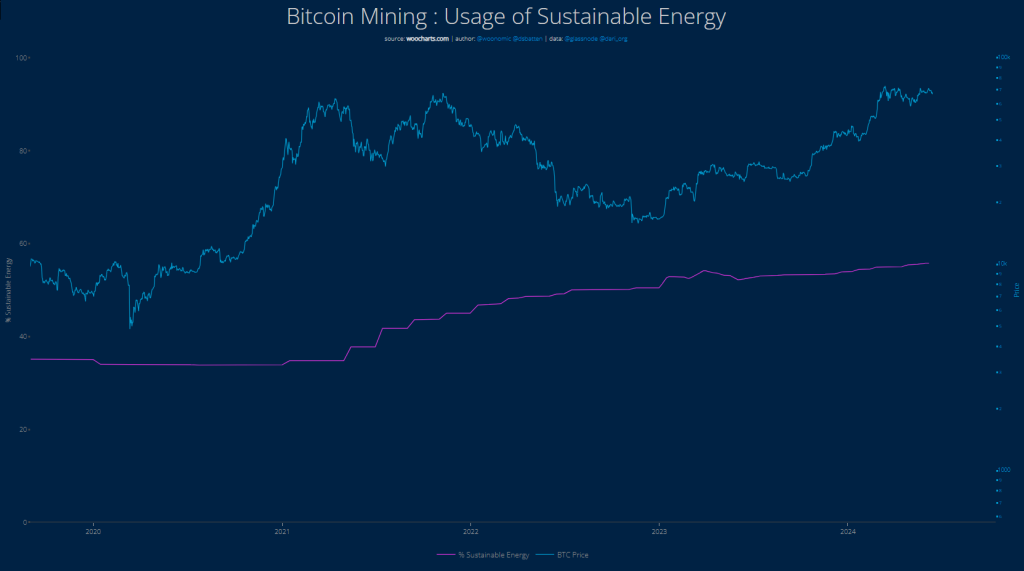The University of Cambridge’s Judge Business School has recently made a significant public acknowledgment: their previously reported Bitcoin mining data has likely led to an overestimation of emissions by approximately 25%. This revelation is crucial in understanding the true environmental impact of Bitcoin mining, a topic that has been widely debated and often misunderstood.
Context & Background
In June 2023, an analysis highlighted three major limitations in the Cambridge model used to estimate Bitcoin mining emissions:
- Energy Over-estimates: The model overestimated energy consumption by about 20.6%.
- Emissions Over-estimates: Due to the use of outdated data, the emissions estimates were inflated.
- Exclusion of Off-grid Mining: The model did not account for off-grid mining, which uses a significant amount of sustainable energy.
These points were initially overlooked by mainstream media, except for Bloomberg Intelligence, which took notice. However, recent developments have vindicated these concerns.
Cambridge’s Public Acknowledgments
1. Energy Consumption Overestimation: In August 2023, Cambridge publicly admitted that their energy consumption estimates for Bitcoin mining had been overstated for more than two years.
2. Emission Overestimation: More recently, Cambridge acknowledged that their old data has likely resulted in an approximate 25% overestimation in emissions since January 2022.
3. Exclusion of Off-grid Mining: The Cambridge model explicitly states that their estimates do not account for activities that could reasonably be expected to reduce emissions, such as off-grid mining operations.
These acknowledgments are critical as they correct two major limitations in their model, though they are still noted in fine print and have not been formally integrated into their primary model. The third limitation, the exclusion of off-grid mining, remains the most significant.
The Impact of Excluding Off-grid Mining

Off-grid mining, which constitutes around 30% of all Bitcoin mining activities, utilizes about 75% sustainable energy. Ignoring this sector is akin to conducting an election poll without including rural voters. This omission skews the data, leading to overestimated emissions and fossil fuel usage in the Bitcoin mining sector.
It is estimated that integrating off-grid mining data into the Cambridge model could take another 2-3 years. In the meantime, policy decisions are being made based on incomplete and outdated information.
Moving Towards Accurate Data Models
We do not need to rely on incomplete models anymore. There is now a fully transparent model available at BEEST (Bitcoin Energy Emissions Sustainability Tracker) that offers real-time, accurate data on the entire Bitcoin mining network. This model includes data from over 70 off-grid mining companies, providing a comprehensive and contemporary view of the network.
Additionally, several live charts using this model give an accurate, holistic view of Bitcoin mining emissions. These charts have gained preference over Cambridge’s data among notable entities like Bloomberg Intelligence and RealVision. Even platforms like Google and ChatGPT now refer to these updated figures instead of Cambridge’s.

The Path Forward
Despite these advancements, there is still work to be done. Many policymakers continue to make decisions based on outdated data. It is crucial to disseminate the corrected and comprehensive data to ensure that informed decisions are made regarding Bitcoin mining’s environmental impact.
Sharing and promoting accurate information is key to changing the narrative and ensuring that policy decisions are based on the best available data. As we move forward, it is essential to integrate all relevant data sources, including off-grid mining, to provide a true picture of Bitcoin mining’s environmental footprint.
In conclusion, while Cambridge’s recent acknowledgments are a step in the right direction, the need for comprehensive, real-time data models like BEEST is more critical than ever. By relying on accurate data, we can better understand and mitigate the environmental impact of Bitcoin mining, ensuring a sustainable future for the cryptocurrency industry.
Author Profile

- Lucy Walker covers finance, health and beauty since 2014. She has been writing for various online publications.
Latest entries
- April 25, 2025Global EconomicsWhistleblowers Unmask Schwab’s Toxic WEF Secrets
- April 9, 2025Global EconomicsTariff Tensions Drive Market Volatility
- March 18, 2025Global EconomicsRed in Name Only: Labour’s War on the UK Working Class
- March 7, 2025SatoshiCraig Wright Banned from UK Courts with Civil Restraint Order





